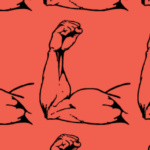Medically reviewed by
Prof Rob McLachlan AM
What is androgen deficiency?
Androgen deficiency is a medical condition caused by problems with your body’s ability to make testosterone.
Either the hormonal signal that tells your testis to make testosterone, or the ability of your testicles to make testosterone, is not working properly.
Androgens are necessary for normal development, health and wellbeing, so androgen deficiency can have wide-ranging effects.
Having a lower-than-normal testosterone level does not necessarily mean you have androgen deficiency.
Low testosterone can be caused by short-term or long-term illnesses, such as an infection or diabetes.
Androgen deficiency affects between 1 in 20 and 1 in 200 men.
Symptoms of androgen deficiency
Subscribe to our newsletter

Causes of androgen deficiency
The most common cause of androgen deficiency is a genetic condition called Klinefelter syndrome, which goes undiagnosed in up to 75% of men who have it.
Androgen deficiency is caused by problems with testosterone production by the testicles. This can be due to the testicles themselves not working properly (known as primary hypogonadism), or because there’s a problem with the production of the hormones that control the testicles’ function(secondary hypogonadism).
Primary hypogonadism can be caused by genetic abnormalities, undescended testes, testicular injury, some types of infections (e.g. mumps) or other diseases (e.g. haemochromatosis).
Secondary hypogonadism can be caused by some genetic syndromes (e.g. Kallmann’s syndrome), disease, or injury to the pituitary gland at the base of the brain.
Diagnosis of androgen deficiency
Your doctor will need to order tests to diagnose androgen deficiency. This usually begins with a blood test.
Treatment of androgen deficiency
How androgen deficiency is treated depends on whether it’s due to primary or secondary hypogonadism.
Management of primary hypogonadism involves testosterone replacement therapy using capsules, injections, skin patches, creams or gels, and is very effective at relieving symptoms of androgen deficiency.
Management of secondary hypogonadism involves medical care to deal with the underlying cause, often with testosterone replacement therapy.
Health effects of androgen deficiency
Along with the signs and symptoms listed above, in the long term androgen deficiency increases your chance of developing osteoporosis, which increases your risk of breaking bones. Androgen deficiency also makes you more likely to be diagnosed with a metabolic disease, like diabetes.
What to do about androgen deficiency
If your test results suggest you have androgen deficiency, your doctor will refer you to an endocrinologist or urologist to confirm the diagnosis. Involving additional specialists ensures you get the best treatment possible and makes the medication you’ll need more affordable.













